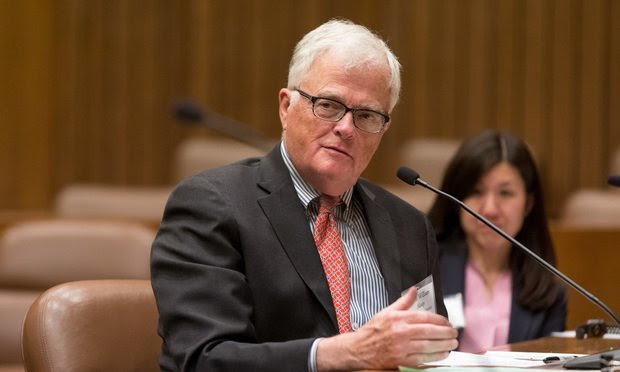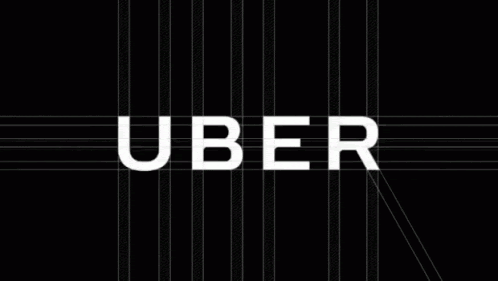What's Next: Judge Refuses to 'Bless' Hypocrisy Over Arbitration + BIPA and CCPA Take New Forms in Court + Uber and Postmates Fail to Raise Serious AB5 Questions
A federal judge issued a warning to both sides before greenlighting mass arbitration against a gig economy company.
February 12, 2020 at 11:03 AM
9 minute read
Welcome back for another week of What's Next, where we report on the intersection of law and technology. Here's what we've got for you this week:
>> A federal judge greenlights mass arbitration against a gig economy company, but issues a warning to the plaintiffs and defense teams first.
>> Three recent suits demonstrate the evolution of privacy litigation.
>> Uber and Postmates can't keep the lid on AB5.
Let's chat: Email me at [email protected] and follow me on Twitter at @a_lancaster.
 Judge William Alsup, U.S. District Court for the Northern District of California.
Judge William Alsup, U.S. District Court for the Northern District of California.
Alsup Pulls Back Curtains on Arbitration
U.S. District Judge William Alsup on Monday compelled more than 5,000 individual arbitration cases to move forward against DoorDash, denying the company's motion to stay the case in favor of a proposed state-court settlement over similar employee classification claims. But the outspoken Northern District of California judge put the plaintiff and defense teams on notice.
Chicago's Keller Lenkner asked Alsup to compel arbitration for nearly 6,000 DoorDash couriers who claimed the third-party delivery company misclassified them as contractors. About half a dozen workers who allege that DoorDash and its Gibson, Dunn & Crutcher attorneys are trying to sidestep their own arbitration agreements sat in court Monday awaiting the judge's ruling.
In the hearing, Alsup said he didn't want to grant a stay over a settlement that's "going nowhere in state court."
Gibson Dunn's Joshua Lipshutz alleged that hundreds of petitioners rolled up in the mass arbitration might be illegitimate after Keller Lenkner was unable to get declarations for 869 of the plaintiffs, and presented DocuSign Certificates of Completion for 400 plaintiffs that were attached to a solo practitioner in New York and had no apparent connection to Keller Lenkner.
Alsup said, even if there's 100 illegitimate plaintiffs "you won't give the rest of them their day in arbitration. It's too late to say day in court, because you took that away from them. You want a stay forever; I know how this works."
In a ruling the judge issued hours after the hearing, Alsup said the case ironically exemplifies the remnants of procedural rights allotted to many workers. "For decades, the employer-side bar and their employer clients have forced arbitration clauses upon workers, thus taking away their right to go to court, and forced class-action waivers upon them too, thus taking away their ability to join collectively to vindicate common rights," he wrote.
Alsup said DoorDash likely never expected so many workers to seek arbitration, as it now resists its side of the bargain.
"Instead, in irony upon irony, DoorDash now wishes to resort to a class-wide lawsuit, the very device it denied to the workers, to avoid its duty to arbitrate," he wrote. "This hypocrisy will not be blessed, at least by this order."
At the hearing, the judge also warned the plaintiffs firm about alleged attempts "to pull the wool over" his eyes.
He said he gave plaintiffs "a road map to victory" but that "Gibson Dunn raises plausible arguments that there might be some shenanigans" going on with the e-signatures.
If Gibson Dunn did find evidence of such shenanigans, he told Keller Lenkner's Warren Postman, "Your firm should pay their firm's bills for that."
"We are confident in the process and that there were no shenanigans," Postman said.
Travis Lenkner of Keller Lenkner said in an email that if companies keep violating their own arbitration agreements, the firm will continue to hold them accountable.
"The facts in these situations are egregious," he said. "To use DoorDash as an example: DoorDash imposed a contract that prohibits class actions and requires arbitration. Then it illegally underpaid hundreds of thousands of people. And then it apparently thought it would get away with blocking a small percentage of those workers from seeking relief in their contractually guaranteed forum. Our position is simple: Companies that commit widespread harm will not succeed in using an arbitration clause as a shield against liability. Judge Alsup's order leaves no room for doubt that we are correct."
DoorDash and Gibson Dunn do not appear to see the proceedings as a total wash.
"DoorDash believes that arbitration is an efficient and fair way to resolve disputes," Lipshutz said in an email. "We stand ready and willing to defend legitimate arbitration demands. As the court recognized, however, the company should only be responsible for arbitrating legitimate claims."

Privacy Laws in Motion
Over the past week or so, we've gotten a taste of the growing momentum of privacy laws. Here's a sampler of recent privacy developments that hint at the evolution of the practice area.
>> Judge Demands Individual Payouts on $550M Facebook Settlement: After Facebook reached a $550 million all-cash settlement over claims it violated the Illinois Biometric Information Privacy Act (BIPA) with its tag suggestions tool, a federal judge wondered why the settlement was so low. In BIPA cases, companies are liable for statutory damages of $1,000 for a negligent violation and $5,000 for an intentional one. U.S. District Judge James Donato of the Northern District of California asked the parties to share what they benchmarked for damages in their March 12 settlement papers and why the amount might be discounted. The Recorder's Ross Todd, who reported on the hearing last Thursday, said "Judge Donato made it abundantly clear that this won't be a rubber stamp settlement. His tone was much more probing than congratulatory. And he really pushed the parties to get creative with notice-use Facebook, emails on file with the company, etc. Should be a fun one to watch."
>> Google Gets a BIPA Suit of Its Own: Lawyers at Ahdoot & Wolfson and Carey Rodriguez Milian Gonya filed a class action BIPA complaint against Google over claims it collects and stores facial recognition data from Google Photos. "Google's proprietary facial recognition technology scans each and every photo uploaded to the cloud-based Google Photos for faces, extracts geometric data relating to the unique points and contours (i.e., biometric identifiers) of each face, and then uses that data to create and store a template of each face—all without ever informing anyone of this practice," the attorneys write.
>> Salesforce Suit One of the First to Mention CCPA: Lawyers for shoppers affected by a data breach at child clothing store Hanna Andersson, including John Yanchunis of Morgan & Morgan, filed suit against the retailer and its e-commerce platform provider Salesforce. The complaint is one of the first to invoke the California Consumer Privacy Act, alleging Hanna Andersson and Salesforce violated the new law "by failing to maintain reasonable security procedures and practices appropriate to the nature of the [personally identifiable information]."

Uber and Postmates Can't Stop AB5, This Time
Despite litigation and lobbying efforts, Uber and Postmates might have to acquiesce to California's Assembly Bill 5, which sets criteria for classifying workers as employees or contractors.
On Monday, U.S. District Judge Dolly Gee of the Central District of California denied the companies' motion for preliminary injunction.
"Plaintiffs have not shown serious questions going to the merits—the critical factor in determining whether to issue a preliminary injunction—and, though company plaintiffs have shown some measure of likelihood of irreparable harm, the balance of equities and the public interest weigh in favor of permitting the state to enforce this legislation," Gee wrote.
Representatives of California Attorney General Xavier Becerra, whose office is defending the law in the lawsuit, said in an emailed statement to Critical Mass' Amanda Bronstad: "We're pleased with the decision. Our office has and will continue to defend laws that are designed to protect workers and ensure fair labor and business practices."
 Elizabeth Holmes and attorneys from Williams & Connolly head into the Northern District on Monday, January 13. (Photo: Jason Doiy/ALM)
Elizabeth Holmes and attorneys from Williams & Connolly head into the Northern District on Monday, January 13. (Photo: Jason Doiy/ALM)
On the Radar
The Undefined Case Against Elizabeth Holmes Lawyers for Theranos founder Elizabeth Holmes said the government strategically used "fudging language" in its indictment against Holmes and COO and president Ramesh Balwani. Williams & Connolly's Amy Saharia said federal prosecutors kept the charges as "broad as they can possibly be so they can shift their theory as they go along." Balwani's lawyers at Orrick, Herrington & Sutcliffe said the charges were too hazy for his client to prepare a defense. "We need some definition and to the extent that the government doesn't want to define 'accuracy' and 'reliability'" that's problematic, Orrick's Stephen Cazares said. Read more from Ross Todd here.
Where Privacy Meets AI Are California and Europe's privacy laws already outdated? Some technology law experts argue that provisions like the General Data Protection Regulation's "Right to be Forgotten" might not be realistic in an increasingly artificially intelligent world. "The ability to be left alone, the ability to be forgotten is aspirational," said Gordon Calhoun of Lewis Brisbois Bisgaard & Smith at Legalweek 2020 in New York last week. Other legal tech pros are more concerned about the privacy implications of "artificial stupidity." Read more from Frank Ready here.
Not Into Labels Tesla's deputy general counsel Yusuf Mohamed tends to seek guidance from his in-house team when it comes to his internal clients. However, when he does seek outside counsel in litigation, for instance, he's more or less firm agnostic. "I like to hire lawyers, not law firms," he said. "I like to hire talent, not law firm brands." Read more from Jonathan Ringel here.
Thanks for reading. We will be back next week with more What's Next.
This content has been archived. It is available through our partners, LexisNexis® and Bloomberg Law.
To view this content, please continue to their sites.
Not a Lexis Subscriber?
Subscribe Now
Not a Bloomberg Law Subscriber?
Subscribe Now
NOT FOR REPRINT
© 2025 ALM Global, LLC, All Rights Reserved. Request academic re-use from www.copyright.com. All other uses, submit a request to [email protected]. For more information visit Asset & Logo Licensing.
You Might Like
View All

What's Next: Judge to Quash Twitter Subpoena | SCOTUS Won't Review Trial Ban
4 minute read

Law Firms Mentioned
Trending Stories
- 1States Accuse Trump of Thwarting Court's Funding Restoration Order
- 2Microsoft Becomes Latest Tech Company to Face Claims of Stealing Marketing Commissions From Influencers
- 3Coral Gables Attorney Busted for Stalking Lawyer
- 4Trump's DOJ Delays Releasing Jan. 6 FBI Agents List Under Consent Order
- 5Securities Report Says That 2024 Settlements Passed a Total of $5.2B
Who Got The Work
J. Brugh Lower of Gibbons has entered an appearance for industrial equipment supplier Devco Corporation in a pending trademark infringement lawsuit. The suit, accusing the defendant of selling knock-off Graco products, was filed Dec. 18 in New Jersey District Court by Rivkin Radler on behalf of Graco Inc. and Graco Minnesota. The case, assigned to U.S. District Judge Zahid N. Quraishi, is 3:24-cv-11294, Graco Inc. et al v. Devco Corporation.
Who Got The Work
Rebecca Maller-Stein and Kent A. Yalowitz of Arnold & Porter Kaye Scholer have entered their appearances for Hanaco Venture Capital and its executives, Lior Prosor and David Frankel, in a pending securities lawsuit. The action, filed on Dec. 24 in New York Southern District Court by Zell, Aron & Co. on behalf of Goldeneye Advisors, accuses the defendants of negligently and fraudulently managing the plaintiff's $1 million investment. The case, assigned to U.S. District Judge Vernon S. Broderick, is 1:24-cv-09918, Goldeneye Advisors, LLC v. Hanaco Venture Capital, Ltd. et al.
Who Got The Work
Attorneys from A&O Shearman has stepped in as defense counsel for Toronto-Dominion Bank and other defendants in a pending securities class action. The suit, filed Dec. 11 in New York Southern District Court by Bleichmar Fonti & Auld, accuses the defendants of concealing the bank's 'pervasive' deficiencies in regards to its compliance with the Bank Secrecy Act and the quality of its anti-money laundering controls. The case, assigned to U.S. District Judge Arun Subramanian, is 1:24-cv-09445, Gonzalez v. The Toronto-Dominion Bank et al.
Who Got The Work
Crown Castle International, a Pennsylvania company providing shared communications infrastructure, has turned to Luke D. Wolf of Gordon Rees Scully Mansukhani to fend off a pending breach-of-contract lawsuit. The court action, filed Nov. 25 in Michigan Eastern District Court by Hooper Hathaway PC on behalf of The Town Residences LLC, accuses Crown Castle of failing to transfer approximately $30,000 in utility payments from T-Mobile in breach of a roof-top lease and assignment agreement. The case, assigned to U.S. District Judge Susan K. Declercq, is 2:24-cv-13131, The Town Residences LLC v. T-Mobile US, Inc. et al.
Who Got The Work
Wilfred P. Coronato and Daniel M. Schwartz of McCarter & English have stepped in as defense counsel to Electrolux Home Products Inc. in a pending product liability lawsuit. The court action, filed Nov. 26 in New York Eastern District Court by Poulos Lopiccolo PC and Nagel Rice LLP on behalf of David Stern, alleges that the defendant's refrigerators’ drawers and shelving repeatedly break and fall apart within months after purchase. The case, assigned to U.S. District Judge Joan M. Azrack, is 2:24-cv-08204, Stern v. Electrolux Home Products, Inc.
Featured Firms
Law Offices of Gary Martin Hays & Associates, P.C.
(470) 294-1674
Law Offices of Mark E. Salomone
(857) 444-6468
Smith & Hassler
(713) 739-1250








